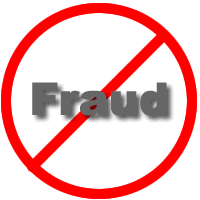Fraud Awareness Month
Did you know the month of March is Fraud prevention month? The Webster dictionary defines fraud as – deceit, trickery; specifically : intentional perversion of truth in order to induce another to part with something of value or to surrender a legal right. The United States result losses from fraud in the billions of dollars each year. Are you protecting yourself and your business?
Here are a few things to do to make sure you avoid fraud.
• Secure your information: Password protection is only the beginning. Don’t write passwords on a post-it note. Employees need to store documents securely, encrypt emails containing sensitive content and only access information that they have permission to view. Tighten email controls to block out as much spam as possible
• Make photocopies of vital information you carry regularly and store them in a secure place, such as a safety deposit box.
• Shred documents containing personal or financial information before discarding. Most fraud and identity theft incidents happen as a result of mail and garbage theft.
• Report fraudulent activity: Whether your company is being defrauded by an employee or someone outside of your company, report it. Reporting fraud as soon as you are aware of it helps to reduce the impact it has on your organization.
• Choose to do business with companies you know are reputable, particularly when shopping online.
Past tragedies and natural disasters have prompted individuals with criminal intent to solicit contributions purportedly for a charitable organization and/or a good cause.
Therefore, before making a donation of any kind, consumers should adhere to certain guidelines, to include the following:
° Do not respond to any unsolicited (spam) incoming e-mails, including clicking links contained within those messages.
° Be skeptical of individuals representing themselves as surviving victims or officials asking for donations via e-mail or social networking sites.
° Verify the legitimacy of nonprofit organizations by utilizing various Internet-based resources that may assist in confirming the group’s existence and its nonprofit status rather than following a purported link to the site.
° Be cautious of e-mails that claim to show pictures of the disaster areas in attached files because the files may contain viruses. Only open attachments from known senders.
° Make contributions directly to known organizations rather than relying on others to make the donation on your behalf to ensure contributions are received and used for intended Do not give your personal or financial information to anyone who solicits contributions: Providing such information may compromise your identity and make you vulnerable to identity theft. Anyone who has received an e-mail referencing the above information or anyone who may have been a victim of this or a similar incident should notify the IC3.

